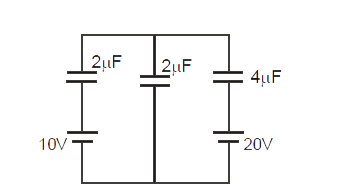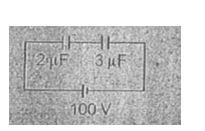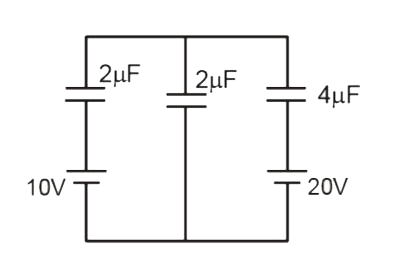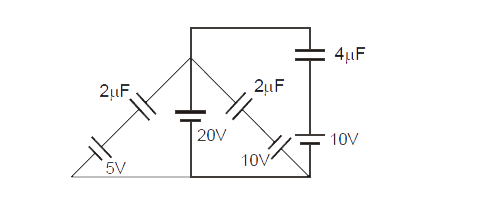Statement-1. In a series combination of capacitors, charge on each capacitor is same.
Statement-2. In such a combination, charge cannot move only along one route.
If both assertion and reason are ture and reason is the correct explanation of assertion.
If both assertin and reason are ture but reason is not the correct explanation of assertion .
If assertion is true but reason is false.
If both assertion and reason are false.
The correct Answer is:C
Step by step video, text & image solution for Statement-1. In a series combination of capacitors, charge on each capacitor is same. Statement-2. In such a combination, charge cannot move only along one route. by Physics experts to help you in doubts & scoring excellent marks in Class 12 exams.
Updated on:21/07/2023Topper's Solved these Questions
- ELECTROSTATIC POTENTIAL AND CAPACITANCE Book:NCERT FINGERTIPSChapter:ELECTROSTATIC POTENTIAL AND CAPACITANCE Exercise:NCERT Exemplar
Explore 6 Videos
- ELECTROMAGNETIC WAVESBook:NCERT FINGERTIPSChapter:ELECTROMAGNETIC WAVESExercise:Assertion And Reason
Explore 15 Videos
- MAGNETISM AND MATTER Book:NCERT FINGERTIPSChapter:MAGNETISM AND MATTER Exercise:Assertion And Reason
Explore 15 Videos
Similar Questions
Knowledge Check
For capacitors in series combination, total capacitance C is given by
A1C=1C1+1C2+....BC=C1+C2+....CC=C1C2+C2C3+ . . . .DC+1C1+C2+.....
Find charge on each capacitor.

View SolutionFind charge in each capacitor:
View SolutionFind charge in each capacitor:
View SolutionCombination of capacitors| series and parallel combination
View Solutioncombination OF capacitor ( series and parallel )
View SolutionTwo identical resistors, each of resistance 15ohm are connected in (i) series and (ii) parallel, in turn to battery of 6V. Calculate the ratio of the power consumed in the combination of resistors in each case.
View SolutionFind charge on each capacitor and potential difference across each capacitor .

View Solution



